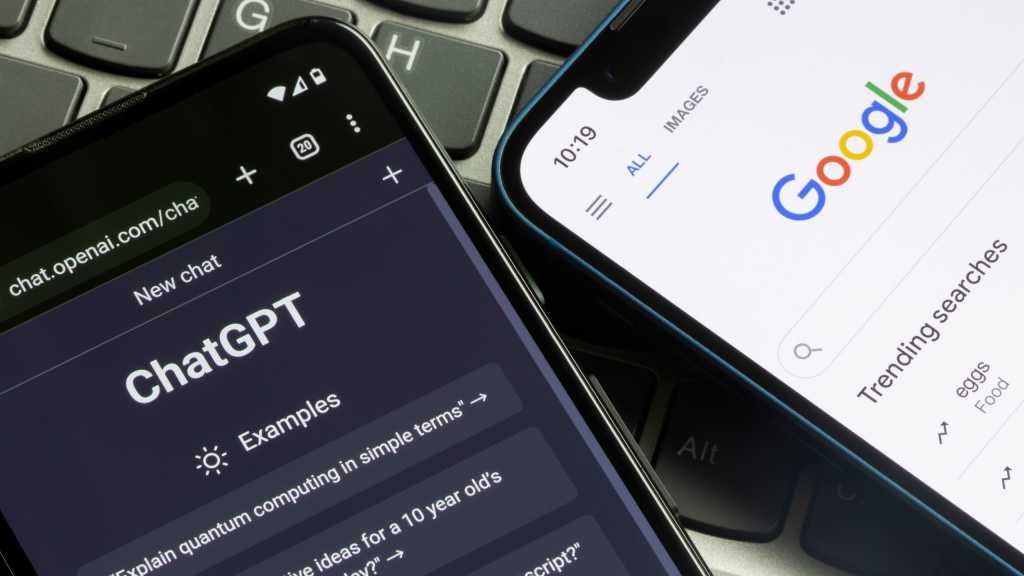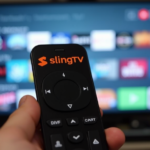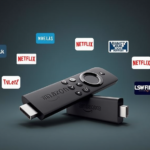When you want to find information online, where do you go? For a long time, Google was the answer. The search giant has become so embedded in modern culture that we use “to Google” as a verb. But there’s a new player on the block—one that has upended everything.
More and more people are flocking to ChatGPT as their primary mode of query fulfillment, and why not? ChatGPT isn’t merely an answer engine. It offers a much more interactive experience than traditional search. Google helps you find links, while ChatGPT does more.
Here are all the ways ChatGPT beats Google Search and why people are choosing ChatGPT over Google for their queries.
Note: We’re only comparing to Google Search here. Google technically has AI Overviews as well as AI Mode now, which are attempts to replicate the magic of ChatGPT—and while even those still fall seriously short of what ChatGPT is capable of, they’re beyond this article’s scope.
ChatGPT answers rather than directs
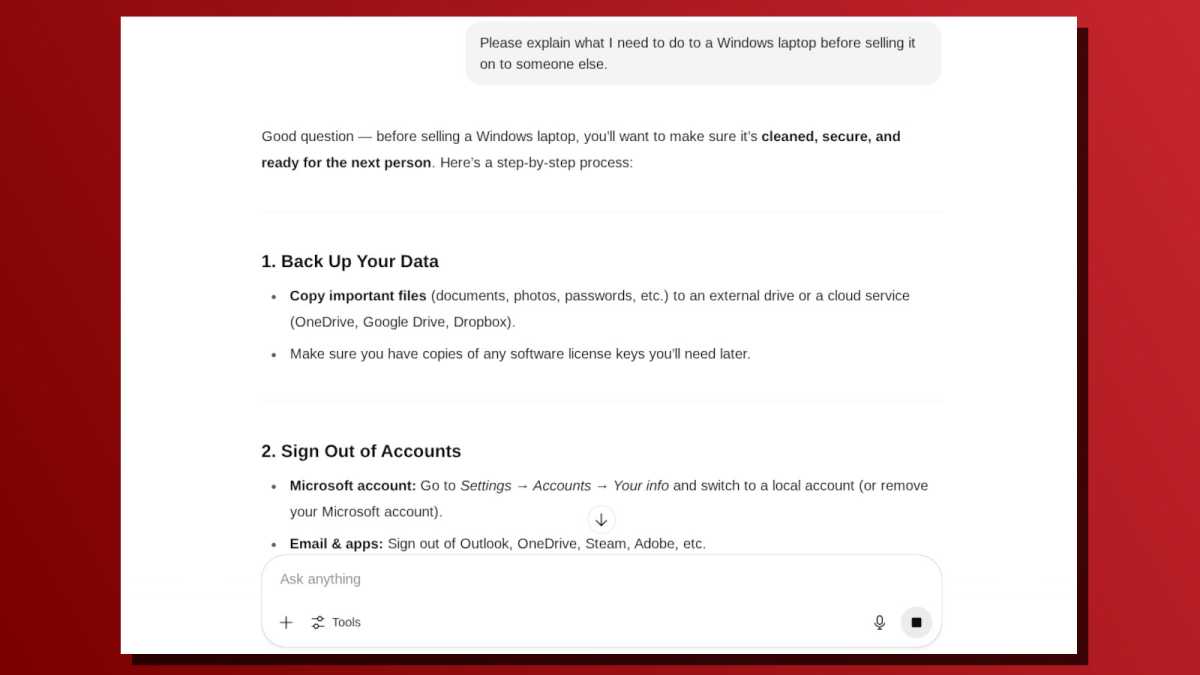
Dave Parrack / Foundry
With Google, you know how it goes: you type in your keywords, then click on a bunch of semi-relevant links hoping that one of them has the information or guidance you need. Google merely directs you to web pages that match your query. ChatGPT, on the other hand, digests all the information on the web and answers you directly.
This fits much better with how humans have shared information for millennia, passing knowledge on from one generation to the next. It also cuts out the middleman, with you being shown and told what you need to know without having to bounce around the web via clicks.
Personally, I much prefer having a conversation with a chatbot than being shepherded around the web to half-answers—especially if, at the end of said conversation, I can walk away with what I was looking for when I went online in the first place. And if you don’t like being spoon-fed answers? ChatGPT has a new mode that you’ll love!
ChatGPT doesn’t “rank” its sources
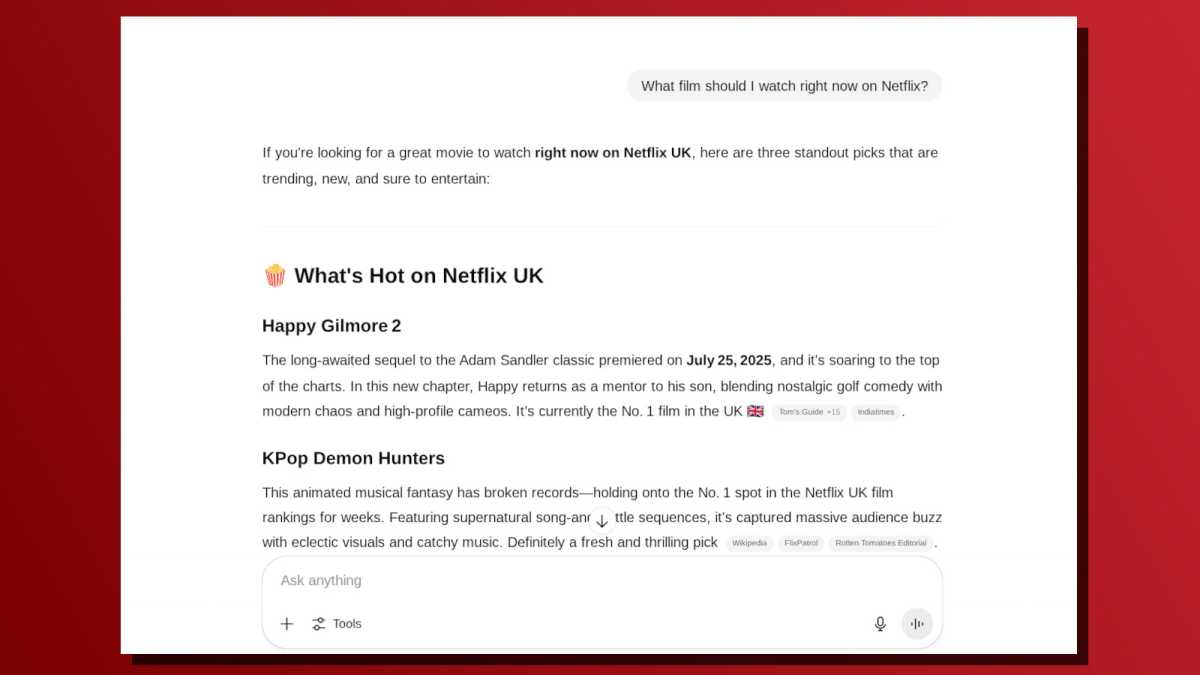
Dave Parrack / Foundry
When you search on Google, you get a list of web pages—and those web pages are ranked and sorted according to how relevant they are to your query. This is how Google organizes what it knows and how it presents all of that to you. Google has to work this way, otherwise you’d have to sort through millions of web results yourself.
But the problem with Google is that its algorithms are far from perfect. Some websites are unduly weighted more heavily than others, smaller publishers get pushed down the rankings because they don’t have enough “authority” or “backlinks,” and lesser-known “hidden gems” are rarely surfaced. And more recently, Google is getting outplayed by AI-generated websites that offer little to no value. In short, you’ve probably noticed that Google’s search results have been getting worse.
To be fair, ChatGPT employs numerous algorithms of its own—but it synthesizes everything into a single answer for you. Unlike Google, ChatGPT isn’t weighting individual web pages; rather, it’s digesting web information to build language models. It’s a different approach that produces (arguably) better results that are more fair, more timely, and more personalized to you as the query-giver.
ChatGPT can be fine-tuned to your needs
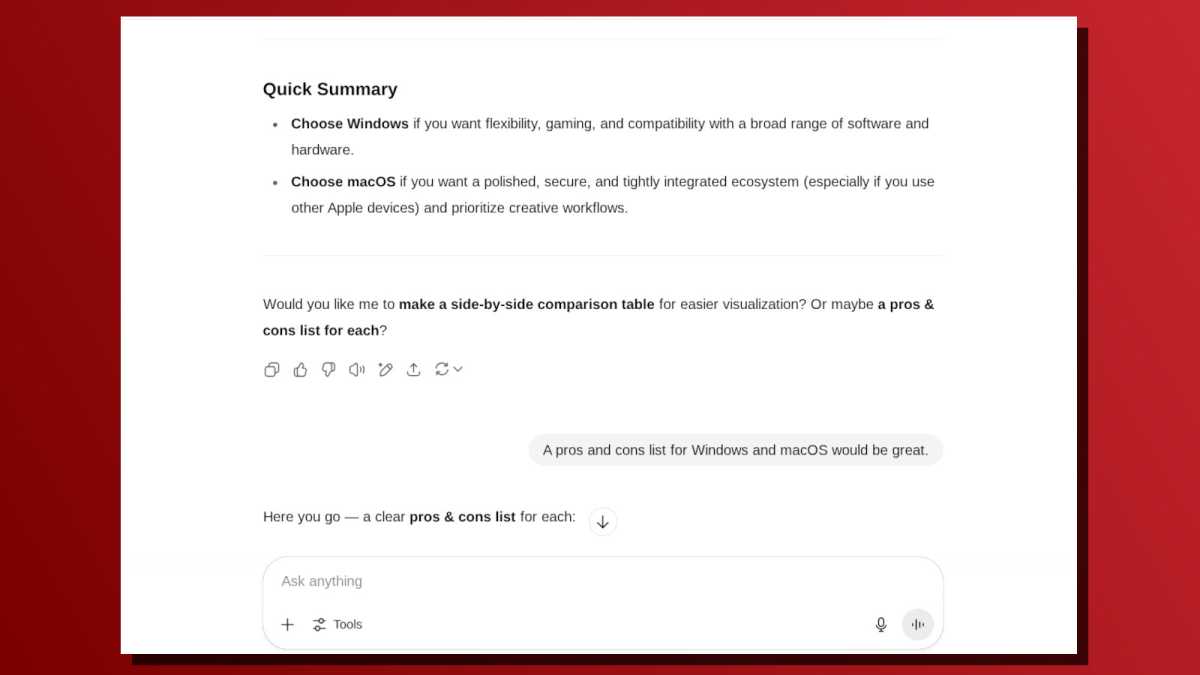
Dave Parrack / Foundry
When you Google something, you’re limited to typing in keywords and exploring the links that are spit out. If you don’t get the response you want, your only real option is to try again with tweaked keywords—which may or may not take you closer to what you need.
With ChatGPT, you can tweak the responses in various ways. Don’t like ChatGPT’s tone? Ask it to be more polite, or cut the sycophantic flattery, or simplify things in a way that even a child would get it. Not satisfied by generic advice? Provide as much extra context as you can muster so ChatGPT gives you specific, highly targeted replies. Hate walls of text? Tell ChatGPT to use bullet points, tables, or whatever else.
Google Search simply can’t compete with ChatGPT’s versatility and ability to deliver exactly what you want and how you want it. It also opens the way to use ChatGPT in surprisingly creative and clever ways.
ChatGPT understands niche context
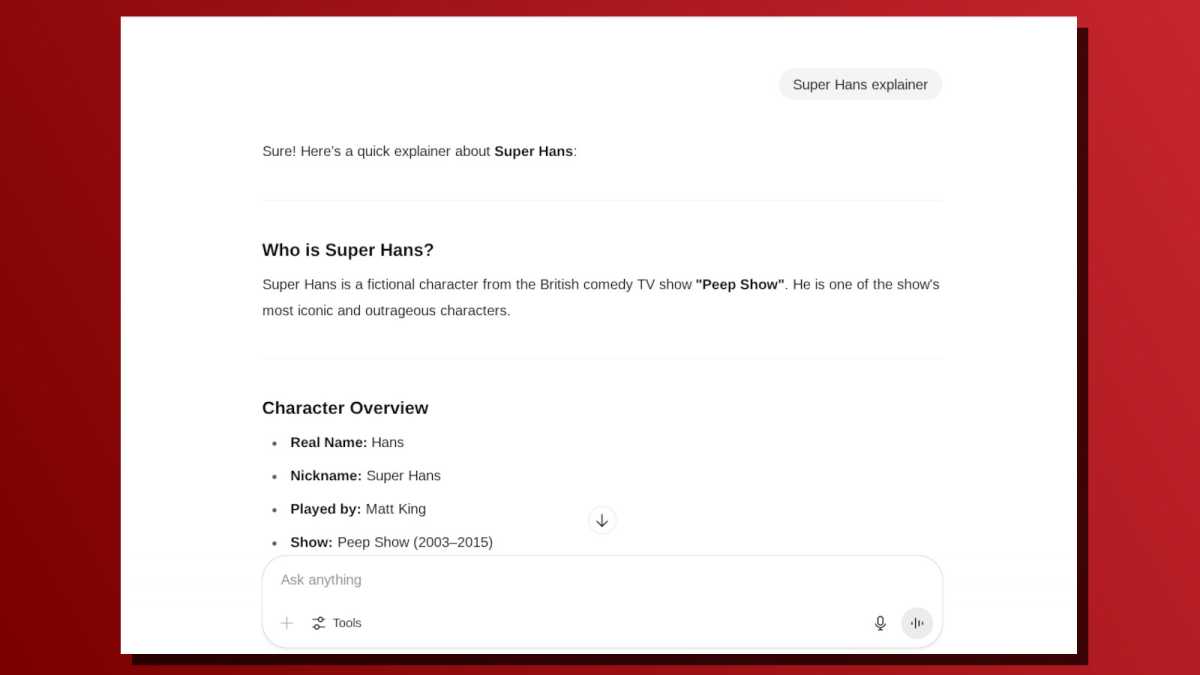
Dave Parrack / Foundry
Have you ever searched for something specific on Google, only for Google to ignore or misinterpret your query? Pretty sure we’ve all been there. And sure, ChatGPT also fails sometimes, but on the whole it’s way better at understanding context than Google.
Here’s an example: You’re looking for some feel-good movies to watch with your family, but some of your family doesn’t speak English, plus you want to keep the runtime to around 90 minutes max. You also want to limit the results to movies on Netflix, Hulu, and Disney+ because those are the only streaming services you have.
If you try to search for that on Google, you’ll end up spending hours scouring through generic lists of “feel-good movies” and filtering for the ones that match your criteria. But if you ask ChatGPT for feel-good movies with all that extra context, you’ll get a much tighter list.
ChatGPT can handle follow-up questions
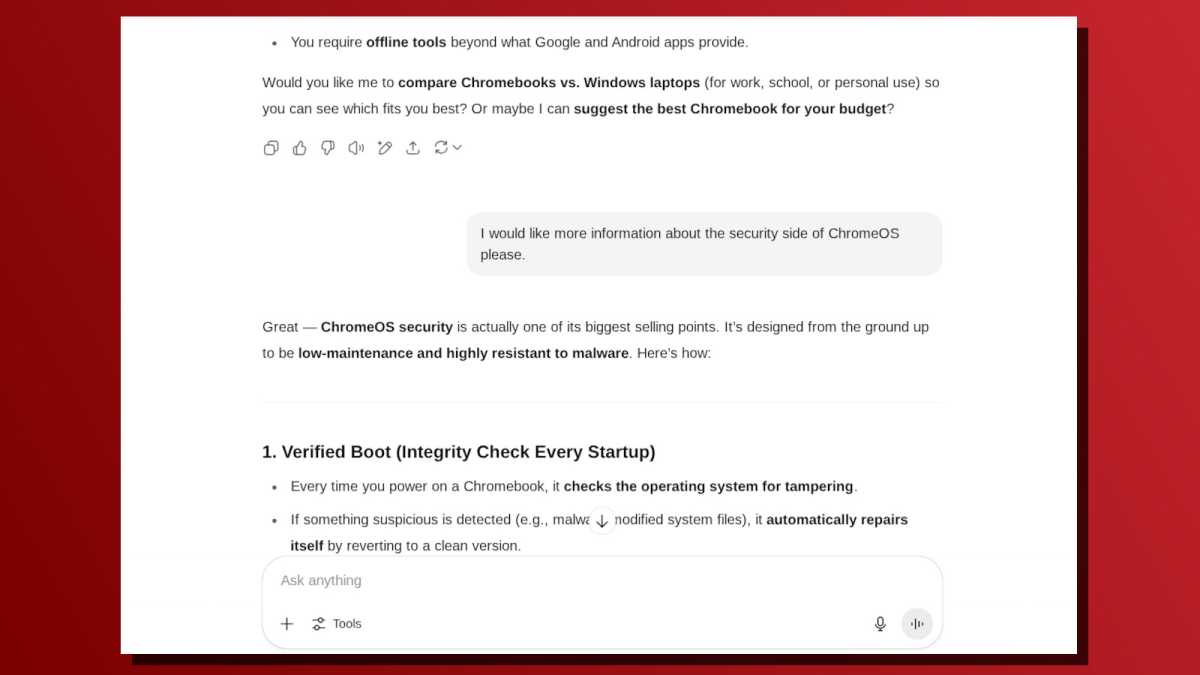
Dave Parrack / Foundry
Once Google sends you its list of links for your query, its usefulness has essentially come to an end. It’s hard to follow up, drill down, and filter the results more towards what you originally intended. With Google, you can run a repeat search with tighter keywords, but that’s about it. Context doesn’t carry over from search to search.
Compare that to ChatGPT, which operates more like a conversation with back and forth messages, allowing you to ask further questions or tweak its responses without losing any context along the way. Even if you start with a dead-simple one-line ChatGPT prompt, you can always keep the conversation going—either with your own follow-ups or using one of ChatGPT’s own suggestions. Then, later on, you can reference something from earlier in the conversation and ChatGPT will get it.
ChatGPT cuts through the worst of the web
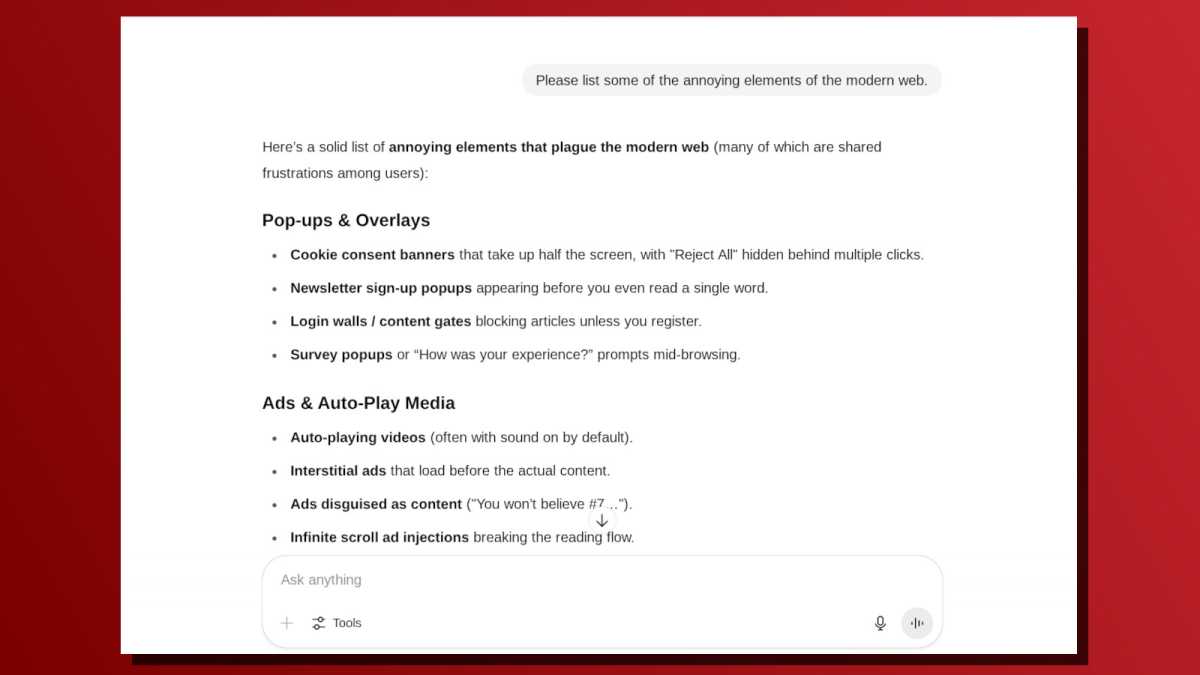
Dave Parrack / Foundry
I’m old enough to remember the earliest days of the web, so I often lament the current state of things: clickbait, intrusive ads, paywalls, autoplaying videos, and more. All of it has made navigating the web more of a chore than the pleasure it used to be.
As of this writing, ChatGPT doesn’t suffer from any of that. You don’t have to sift through clickbait, block ads, close videos—and that’s why ChatGPT’s user base continues to grow and grow.
ChatGPT compiles everything and presents it to you in whatever format you want, making the experience far more pleasant. You might run into chat limits and upgrade nags with the free version, but that’s about it.
ChatGPT is a dynamic database hacker
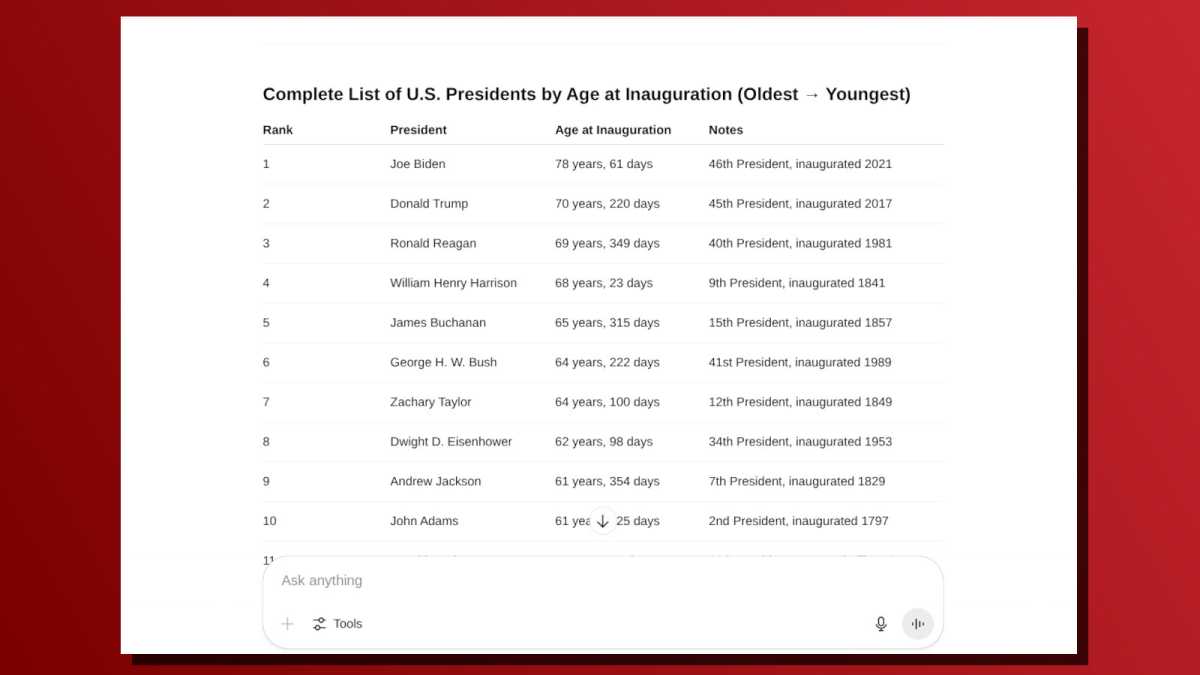
Dave Parrack / Foundry
Google Search merely points you to pre-made web pages that are written in one specific way. A listicle of movies might be helpful, but it’s static—you can’t rearrange that article according to different criteria. It’s presented one way and you have to take it or leave it.
On the other hand, ChatGPT doesn’t just point you to links. It absorbs all the information it comes across and waits for you to ask what you want to know in the format you desire. Whereas Google Search is a repository of links, ChatGPT is more like a database you can play around with.
For example, search Google for a list of US presidents and you might get them ordered by birth date, by term years, or by age at inauguration. But what if you want a list of US presidents ordered by their wife’s age at the time of their death? Or what about a list of all current NFL coaches ordered by debut year? These kinds of highly-specific, dynamic queries are an example where ChatGPT shines over Google Search.
ChatGPT will actually do things for you
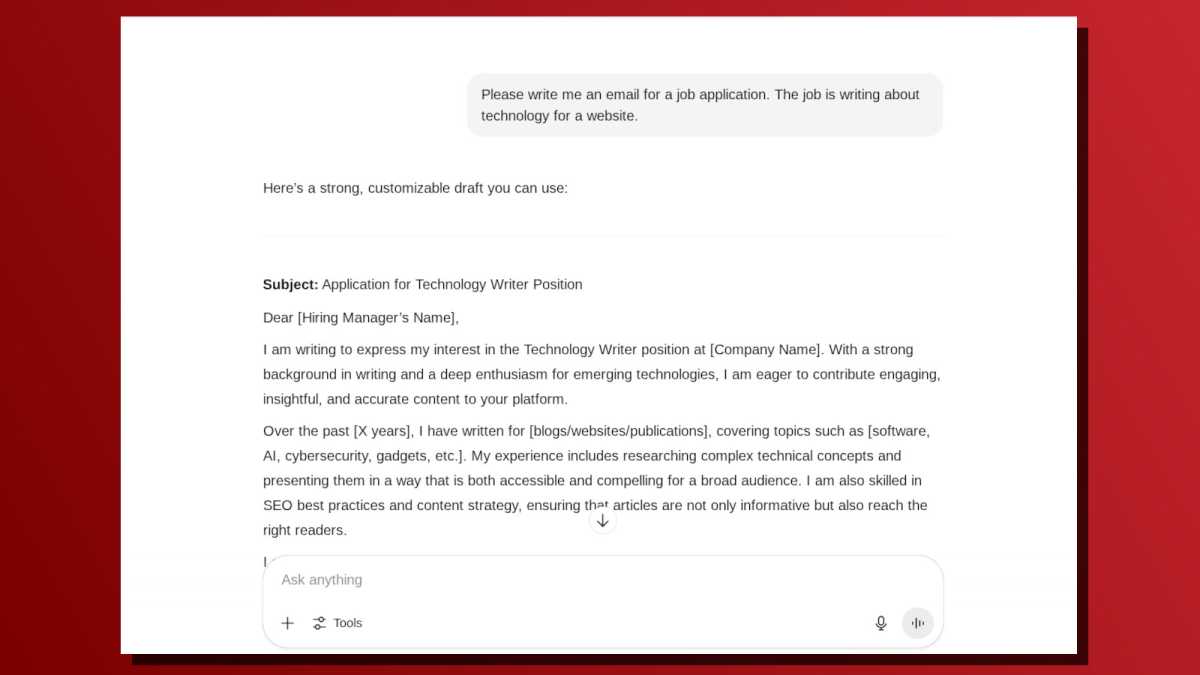
Dave Parrack / Foundry
What’s better than being told how to do something? Someone else doing it for you, of course! Especially when that something is a menial task like writing emails or generating itineraries.
With Google Search, you’re stuck navigating websites that tell you things—advice, walkthroughs, fun facts—but with ChatGPT, you get an interactive assistant that can generate written and visual content for you.
For example, maybe you need a refreshed job résumé. Searching Google might lead you to various templates that can help you get started, but ChatGPT can create a personalize résumé for you. All you have to do is feed it the right information and maybe tweak the results a bit.
Further reading: Never say these things to ChatGPT, or else

